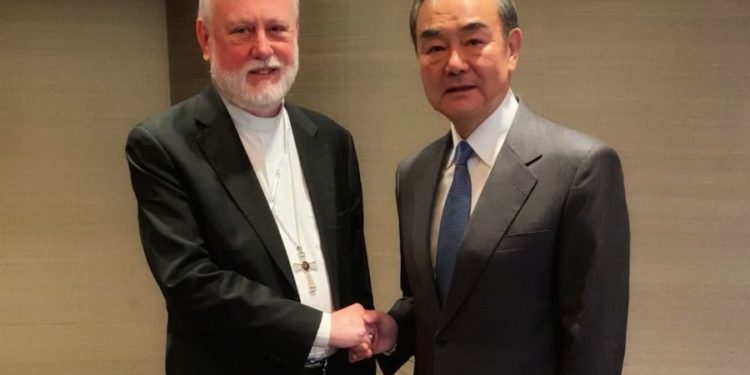In the view of the Bitter Winter report, the recent events were motivated by officials’ belief that manifestations of religious dissent should disappear amid preparations for the July 1 centenary of the Chinese Communist Party.
A July 15 report from Asia News, a publication of the Pontifical Institute for Foreign Missions, said the bishop’s arrest is “a further demonstration that the agreement between the Vatican and China on the appointment of bishops has not changed the past dynamics, with the Chinese Communist Party continuing to tightly control the activities of religious personnel.”
Asia News said the Catholic faithful have circulated a prayer to God for Bishop Zhang. It reads, in part: “We pray that you will give him the strength and courage to face the difficulties encountered during his ministry; we pray that you will give him physical and inner peace. Through our Lord Jesus Christ, your Son, who is God, and lives and reigns with you, in the unity of the Holy Spirit, for ever and ever.”
Bishop Zhang’s cause has global support.
In June, Archbishop Eric de Moulins-Beaufort of Reims, president of the French bishops’ conference, voiced “deep concern” about the arrests of Bishop Zhang, the other clergy, and the seminarians.
The archbishop sent “the fraternal greetings of the Catholics of France” to Bishop Zhang and the other detainees, calling the imprisonment “a particularly harsh and unjust test,” UCA News reports.
Katharina Wenzel-Teuber, editor of the Germany-based church-run publication China Today, said communist authorities previously tolerated clergy who were not officially recognized by the government, but authorities are increasingly cracking down.
“Since the new decree came into force on May 1, priests who were members of the Chinese underground church are under great pressure to register with the official, state-recognized patriotic church,” she told the German Catholic news agency KNA.
In October 2020, the Vatican and China renewed their provisional agreement on the appointment of bishops for another two years.
On July 28 Anthony Li Hui became the fifth bishop to be consecrated under the 2018 Vatican-China deal. Pope Francis had named him coadjutor bishop of the Diocese of Pingliang in north-central China, whose wider metro population numbers over 2 million people.
Bishop Li, 49, is the former secretary of the state-sanctioned Chinese bishops’ conference.
Critics of the agreement argue that it represents a betrayal of “underground” Catholics who have remained loyal to the pope despite persecution. They claim the agreement has prevented the Vatican from denouncing flagrant human rights abuses in China.
In an Oct. 3 speech in Milan, Vatican Secretary of State Cardinal Pietro Parolin defended the agreement as “only a starting point” for better relations. He said critics have misunderstood it and attribute incorrect objectives to it. The agreement “concerns exclusively the appointment of bishops.” Acknowledging many other problems facing the more than 10 million Catholics in the country, he said “it has not been possible to address them all together and we know that the road to full normalization will still be a long one, as Benedict XVI predicted in 2007.”
An agreement on appointments was vital to avert further illicit episcopal consecrations, the cardinal said, explaining that the Vatican decided “to confront and resolve this delicate problem once and for all.”
The pastoral goal, he continued, was “to help the local Churches to enjoy conditions of greater freedom, autonomy and organization, so that they can dedicate themselves to the mission of proclaiming the Gospel and contributing to the integral development of the person and society.”
Credit: Source link




